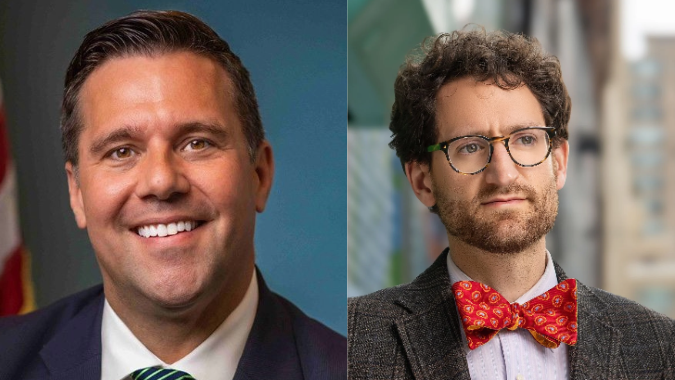–by Anthony Birritteri, Editor-in-Chief, New Jersey Business Magazine–
New Jersey is flush with cash, thanks to soaring state revenues totaling $51.4 billion for fiscal year 2022; up $7.8 billion over two years. With that number, State Treasurer Elizabeth Maher Muoio called for establishing a healthy budget surplus as the economy is showing signs of a slowdown.
At Tuesday morning’s Meet the Decision Makers event at New Jersey Business & Industry Association headquarters in Trenton, Muoio attributed the increases in revenues to strong gross income tax (GIT) and the pass-through business alternative income tax (PTBAIT) collections, which combined, account for $6.2 billion of the $7.8 billion in revenue growth.
However, the treasurer said the revenue surge comes with warning signs. “Looking at underlying data, the warning signs include world events, federal reserve interest rate hikes meant to curb inflation, declining home sales, and lower GDP growth projections for 2022 and 2023. In fact, US real GDP is down 1.4% in the first quarter of 2022,” Muoio said.
Consumer spending growth has peaked and is starting to decline, she added. Meanwhile, New Jersey sales tax collections for April grew by approximately 7%, which will be the lowest growth this year, and is a sharp slowdown from the 17% growth seen in March.
For the upcoming fiscal year, Muoio agreed with an Urban-Brookings Tax Policy Center report that said states are in a fiscal bubble and that current revenue growth rates are not sustainable.
Muoio said that some revenue collections have peaked and should adjust to more sustainable levels, commenting, “We are assuming that economic growth will continue, but revenue growth will right-size after the current fiscal bubble.”
With an economic slowdown and “potential recession” approaching, Muoio called for maintaining a healthy budget surplus. If extra revenues are to be spent, they should not be used to create unsustainable programs with longtime funding commitments.
She warned that if the nation were to experience “a mid-level type of recession,” the state could see a $10 billion revenue dive in just two fiscal years. “We need to have a surplus in place that will help us get through the tough times,” Muoio continued, but said candidly that making an argument for a surplus is difficult.
Despite her support for a large surplus, Muoio noted there is no constituency clamoring for a surplus like there is with other spending.
“It’s not like there are people on the street with signs saying, ‘Raise the surplus!’ The state has so many needs … this is not a popular argument to make,” she said.
Overall, Muoio pointed out this is the first time in current memory that the state has a structural surplus as opposed to a structural deficit. “The goal should be – at least – not going back to budgets with structural deficits. This will be worked out as the Legislature delivers an appropriations act. We will see how this all shakes out,” Muoio said.




